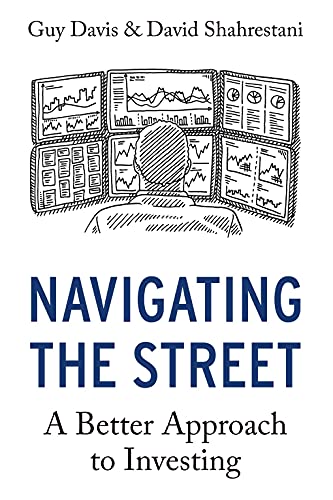Listen to Guy Davis, Portfolio Manager discussing our investment approach on the ValueWalk podcast.
Our Investment Approach is Genuine Investment
Genuine Investors focus on businesses, not stocks
Business Value ≠ Stock Price
Business value is derived from the cash flows that can be produced for the owners in the future.
Those prospects change little quarter to quarter.
Stock prices are derived by business value AND many other immaterial factors which are both short term and unpredictable.
E.g. news, sentiment, emotions, flows, value of other stocks/ assets, accounting rules
Business value = Business value
Stock price = Business value AND Many other variables
What does this mean in practical terms?
- Think like a business owner: focus on the underlying economics of the business.
- Take a long- term view: remain fully invested. If you can’t time the market, the best place to have capital is in great businesses.
- Run a concentrated portfolio: why dilute great ideas with average ones?
- Use the market- don’t rely on it. The market provides opportunities, but not reliable information about business value.
The Genuine Investment Process:
We need to answer two questions :
- Is this a high-quality business?
- Is the stock trading at an attractive price relative to business value?
1. Is this a high-quality business?
This is a very difficult question to answer- it requires a very deep understanding of a company, their product and their industry.
A truly high-quality business doesn’t just have good historic returns, it must have an identifiable moat or competitive advantage – something structural that prevents competition from eroding profits and returns over time, and it needs to be well managed.
No amount of historical data can determine the quality of a business, or the future defensibility of a moat. That can only be understood through qualitative analysis. Reported numbers only get you so far- they will never tell the whole story.
To really understand a business requires huge amounts of qualitative research: culture, management, company, industry, employees, competitive advantage, regulation, etc.
2. Is the stock trading at an attractive price relative to business value?
It is only once we have a very deep understanding of a business that we can even begin to appropriately value it. And even then, we remain aware that valuation is not a precise science.
Given our deep knowledge of companies, we are able to forecast future earnings much further than others- often 10 years+. This is where the vast majority of company value lies. Using a DCF (as a business owner would) we can then determine the intrinsic business value.
All of our valuation work is carried out independently of the market. Relative valuations, or metrics/ ratios/ multiples based on misleading reported numbers are of little use in Genuine Investment.
Once we have estimated the business value, we compare that to the stock price. This approach allows us to calculate an IRR for every position- something incredibly useful when it comes to portfolio management.
GCI Select Equity: Key Differentiators
Value & Growth Mix
Our investment process considers both value and growth stocks by focusing on the long-term, future free cash flows of the companies we invest in. For us, each investment we make is analyzed simply as a business.
All-Cap Universe
We invest in companies of all sizes, including mega-caps that satisfy our criteria for high quality businesses trading at attractive prices relative to their real intrinsic value.
Concentrated Portfolio
We actively manage a concentrated portfolio of 20 to 30 positions, enabling us to sufficiently diversify single stock risk, while remaining capital focused on the most attractive investment opportunities.
Proprietary Process
Genuine Investing is our disciplined, repeatable, and proprietary process, built to evaluate businesses as long-term owners would.
Behavioral Advantage
We take a rational, long-term view, while the market continues to focus on the short term. We remain resolutely disciplined to our philosophy and strategy, rather than following the market.


